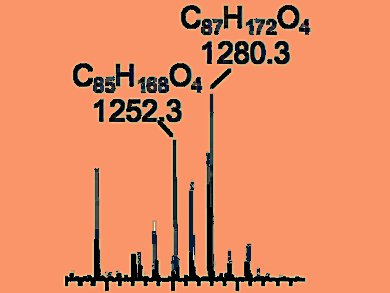A sensitive, pathogen-specific, point-of-care test for tuberculosis (TB) case detection would represent a breakthrough in TB diagnostics for disease endemic settings, but a lack of appropriate biomarkers has prevented this so far.
A research team around Guanghou Shui and Markus R. Wenk, National University of Singapore (NUS), found that certain mycolic acids – molecules found on the cell wall of Mycobacterium tuberculosis, the bacterium causing TB, – are specific TB disease markers. Their study analysed sputum samples from close to 200 individuals with pulmonary TB, some of whom were also infected with HIV. The samples were obtained from patients and endemic controls in South Korea, Vietnam, Uganda, and South Africa – countries with a significant burden of TB.
High resolution mass spectrometry was used to determine the precise bacterial remnant in sputum. Based on this analysis, it was possible to separate non-TB patients from those with active TB infection, with diagnostic results better than the most widely used TB diagnostic test, sputum smear microscopy.
The high resolution mass spectrometry methodology is complementary to existing TB diagnostics, and is also fast, providing results within a day. A preclinical study revealed that it could also distinguish between active TB cases and cases that had been cured from TB. A patent application for the technology has been filed and the research and license agreements facilitated.
- Mycolic acids as diagnostic markers for tuberculosis case detection in humans and drug efficacy in mice,
Guanghou Shui, Anne K. Bendt, Ignasius A. Jappar, Hui Ming Lim, Marie Laneelle, Maxime Hervé, Laura E. Via, Gek Huey Chua, Martin W. Bratschi, Siti Zarina Zainul Rahim, Ang Lay Teng Michelle, Soo-Hee Hwang, Jong-Soek Lee, Seok-Yong Eum, Hyun-Kyung Kwak, Mamadou Daffé, Véronique Dartois, Gerd Michel, Clifton E. Barry, Markus R. Wenk,
EMBO Molecular Medicine 2011, 4 (1), 27–37.
DOI: 10.1002/emmm.201100185




